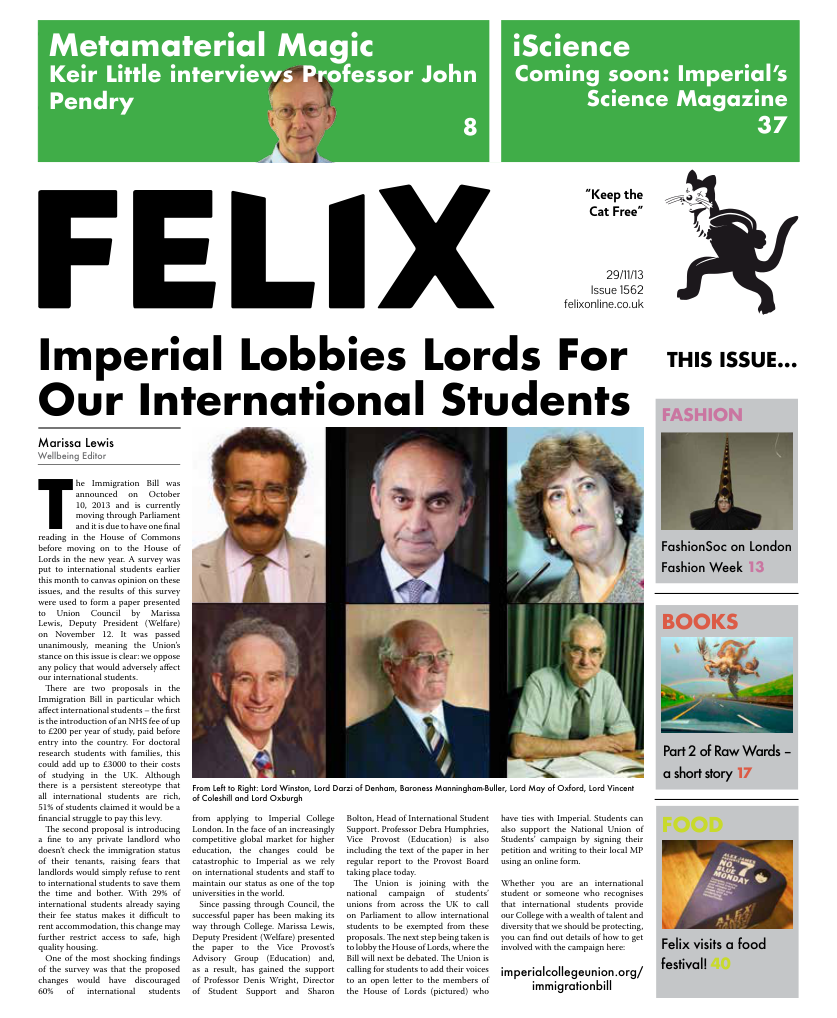Murder, poverty, passion, rage
Kamil McClelland witnesses Woyzeck’s descent into madness
What: Woyzeck Where: Omnibus Clapham, SW4 When: 19th Nov to 7th Dec 2013 Price: £15, concessions £12
Through an ominous mist and a haunting cello note, I enter the theatre. Two figures sit there, hacking away at timber, as I cross the woodchip floor to my seat. This is just how Georg Büchner’s seminal work Woyzeck should be performed: intimate, inclusive, atmospheric. Clapham’s newly opened Omnibus Theatre provides an excellent setting for this play. In its first in-house production, the converted Victorian library creates a truly unique performance space, cut in two by a colonnade that encourages exciting and innovative stage design.
One hundred years after its first performance, Woyzeck tells the story of a poor man – a barber, soldier and occasional scientific test subject, who is constantly belittled and ridiculed by his superiors. When his wife finally cheats on him with a handsome Drum Major, his eroding mental condition compels him to murder her in a fit of rage. The plot was in fact inspired by an actual murder that took place in Leipzig, executed by a wigmaker called Woyzeck who said he heard voices that urged him to do it. Throughout the play, Woyzeck is dehumanised and criticised, whether it be for pissing on a wall like an animal or by being forced to eat nothing but peas for six months as part of an experiment. Even the midday sun oppresses him as he works to scrape together a living for his wife and child. His whole life is torment, submission, misery, like the monkey puppet forced to perform by the dominant showman. And so it seems simple enough a play, a classic tale of poverty, lust and a murder of passion. However, it is anything but that, as it becomes clear through the phenomenal scriptwriting of Büchner. Free will, determinism and exploitation of the underclasses are all addressed through the tragedy that Woyzeck becomes. It is the powerfully relevant nature of such themes that makes this play so timeless and especially poignant in today’s world of economic injustice.
Because of this, people often describe Woyzeck as the first truly modern drama. Modernity is also seen in its assembly. Fragmented, it is a play formed from a mosaic of cut scenes that creates a plotline as disjointed as Woyzeck’s paranoid mind.
For me, it is the play’s writing, themes and structure that make it so brilliant, not especially its setting in a small German town. I feel this detracts from the work’s underlying messages and so I think an update is needed to make it more relevant to the audience. Hence, I thought it a shame that the original setting was hardly changed by the director. I went away thinking what an exceptionally clever play Büchner had written, as opposed to considering its interpretation and performance.
Such was the influence of Büchner’s play that many adaptations of it were made, most notably Alban Berg’s opera Wozzeck, which appeared at the Royal Opera House a few weeks ago. I found comparing the two very interesting, as it showed precisely the effect of music on the drama itself. Berg’s modernist masterpiece of atonality, I feel, perfectly complimented and even accentuated the madness and hopelessness of the main protagonist’s struggles. But which was better, the play or the opera? Even though the former was excellent, both intense and poignant, I feel the opera was able to intensify this experience, sensationalising the script to create a piece of art that still lingers with me after all this time. Woyzeck is still well worth seeing. The beautiful setting and some excellent acting performances, especially from Liam Smith, the helpless yet frenzied Woyzeck, really make for a brilliant show. But I think what is most clear from the play is the sheer genius of Büchner. At only 23, he was able to create a work that combines drama and emotion with deep philosophical questioning and poignant social criticism. To create a character in Woyzeck that can be empathised with, despite having murdered his wife in a state of virtual insanity, is a phenomenal feat definitely worth experiencing.





